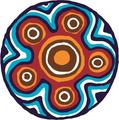Year 9 Term 2 Overview

Year 9 Hums
Aliesha
This term, Year 9 students will explore the complex relationship between people and the environment, focusing on how human activity shapes—and is shaped by natural systems. Through case studies, data analysis, and inquiry-based projects, students will examine the environmental impact of trade, transport, tourism, and consumption, including Australia's role in global trade supply chains. They will learn about sustainability from multiple perspectives, including Aboriginal and Torres Strait Islander approaches to caring for Country. From evaluating worldviews on environmental responsibility to proposing real-world management strategies, students will deepen their understanding of geography’s role in solving pressing global challenges.
Year 9 English (Jing)
In Term 2, Year 9 students will study a variety of poetry forms, including songs, free verse, lyrical poetry, and fixed-form poetry. They will analyse the use of language features—such as symbolism and imagery—and examine how poetic devices enhance meaning and create personal connections for a deeper understanding. Students will also explore how poets use structure and technique to engage readers. Towards the end of the term, students will experiment with writing their own poems, incorporating a range of language features and poetic devices. They will then present their work at a slam poetry café, where they will reflect on their creations and receive feedback from their peers.
Year 9 Science ( Din)
In Term 2, Year 9 students will learn about the processes of sexual and asexual reproduction and describe how it enables the survival of the species. In the process, students will compare the difference between sexual and asexual reproduction. Through such comparison, students will be able to list the advantages and disadvantages of sexual and asexual reproduction. Students will also be exploring the structures of reproductive cells and organs in plants and animals and to be able to understand their functions. Students will explore differences and similarities between biologically male and biologically female reproductive structures. Students will appreciate that processes of sexual and asexual reproduction enable the continuation of the species.
Subsequently, students will also be learning about DNA, genes and hereditary characteristics. Students will explore the processes that underpin heredity and genetic diversity, and be able to predict the outcomes of monohybrid crosses.
Further exploration will lead students to go deeper into understanding genetic inheritance involving DNA, chromosomes, genes and alleles. The process of mitosis and meiosis will be investigated to unveil how genetic information is passed on from one generation to the next. Students will be introduced to the principles of Mendelian inheritance which can be used to predict rations of genotypes and phenotypes in monohybrid crosses involving dominant and recessive traits.
Year 9 Masterchef
This term in the Year 9 Food Technology Masterclass, students will explore a variety of global cuisines while developing key skills in planning, managing, and evaluating food projects. Practical lessons will include making choc chip cookies, sabaayad and suqaar (Somalia), Thai green curry (Thailand), Burritos (Mexico), Pani popo (Samoa), Basbousa (Middle East), Shish tawook wraps (Lebanon), and a final banquet. Through these dishes, students will apply the principles of food safety, hygiene, preservation, preparation, and presentation to create food solutions that are both culturally respectful and health-conscious. Supporting theory lessons will focus on project planning, including timelines, cost analysis, risk management, and production processing in preparation for the final banquet. The term will conclude with a collaborative banquet and reflection, where students will demonstrate their ability to plan, produce, and evaluate food solutions with creativity, teamwork, and attention to quality.
